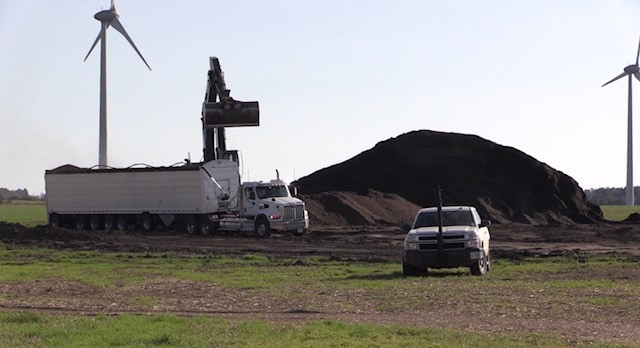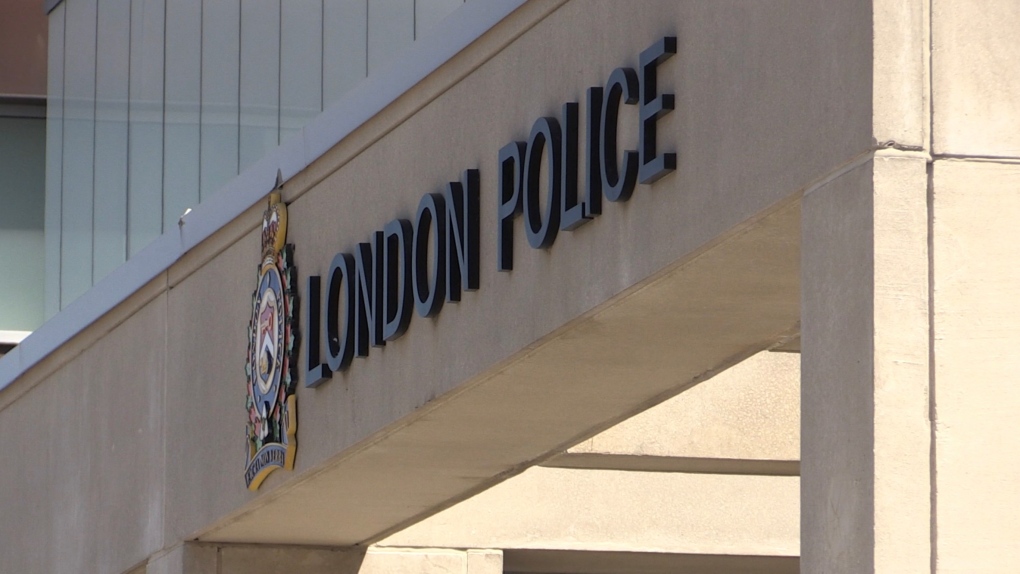
Claude and Sarah Wiggerman have spent their summer and fall frustrated with a pile fertilizer near their Bruce County property.
“It’s dried human waste. It’s human waste from industrial and residential places, all across North America. It’s heat treated and then made into a pellet, and used in commercial, and I use that term loosely, ‘fertilizer,’” said Sarah.
The company behind the pile, Lasalle Agri, said their AgroBoost fertilizer is a derivative of processed municipal sewage sludge, known as biosolids.
“AgroBoost fertilizer has biosolids as a source material, which are subject to advanced treatment to be considered safe and effective as fertilizer, as defined under the Fertilizer Act,” said Lasalle Agri President and Co-Founder, Roger Buurma.
5,300 tonnes of it has been stored near the Wiggerman’s property since April, and ultimately spread on neighbouring farmers’ fields. The Wiggermans are concerned about their water quality, health and well-being of their family, as they’ve seen spreading of the product in the rain, not to mention the smell.
“When they’re spreading it, there’s a lot of dust blowing around. The smell will make you spit the food right out of your mouth. Anytime it rains, or there’s a strong dew, it’s worse. I like to sit on our back deck in the morning with a coffee. We haven’t been able to do that in a long time, because of the smell. It’s a pharmaceutical smell,” the Wiggermans said.
Frank and Cindy Dore share the Wiggerman’s concerns, and said the spreading of Lasalle’s fertilizer has covered their home, property, and garden near Langside, in “biosolid dust” twice in the past four years.
“We weren’t overly impressed. Nobody wants dried sewage thrown on you or your vegetables you wanted to eat. I never ate another apple that year off our trees,” said Frank Dore.
The Dores said they get sore throats and coughs immediately following each spreading, and have complained to the company, the Ministry of the Environment, and the Ontario Ministry of Food and Rural Affairs, to no avail.
Lasalle Agri said on their website there hasn’t been any adverse effects to health, human, soils, or crops in the 40 plus years biosolids have been applied to Ontario fields.
“We have developed speciality spreading equipment designed to distribute the material at ground level accurately and to mitigate any off-site impacts,” the company co-founder, Roger Buurma, said in a written statement.
It’s not good enough for either of the Wiggermans or Dores who want someone to take responsibility for the impacts this fertilizer derived from human sewage is having on their lives.
“Somebody needs to recognize it’s a problem for people. It’s not right when people can’t enjoy their properties, right,” said Sarah.
“We would like some government agency to take some responsibility for it. I too, have called the Ministry of Environment and Ontario Ministry of Food and Rural Affairs, and they just keep passing you around. What are we going to catch from it? Are there any pathogens or carcinogens, anything like that in it, that we don’t know about, and they’re not telling us,” the Dores said.
On their website, Lasalle Agri said they’ve spread their biosolid-based fertilizer on 200,000 Ontario acres in the past 15 years, and have many pleased customers and neighbours.
They said they also take all comments, questions and concerns seriously.
Lasalle Agri was fined in 2019 for breaking municipal zoning by-laws in Warwick Township, in regards to the storage of their biosolid-based fertilizer.
https://london.ctvnews.ca/human-biosolid-waste-spread-on-fields-in-bruce-county-1.6626763





